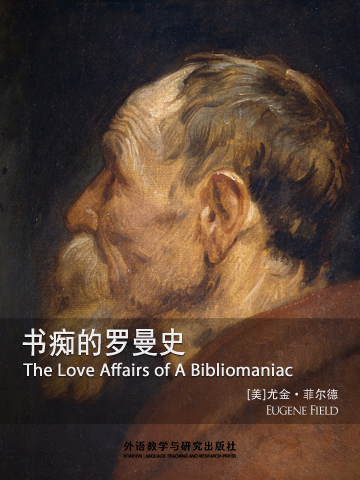《书痴的罗曼史》出版于1896年,是一部关于书籍的心灵传奇。本书以一位老书痴的回忆作为主线,引领读者进入一个书的神奇世界。在写完该书第十九章后两天,尤金·菲尔德在睡梦中与世长辞。他对书籍的一腔柔情都寄托在这本遗作当中。
Originally published in 1895, this early works is a fascinating novel of the period and still an interesting read today. According to the author, collectors may be grouped in three classes: those who collect from vanity, those who collect for the benefits of learning and those who collect out of veneration and love for books. The author fell squarly in the latter category.
《书痴的罗曼史》出版于1896年,是一部关于书籍的心灵传奇。本书以一位老书痴的回忆作为主线,引领读者进入一个书的神奇世界。在写完该书第十九章后两天,尤金·菲尔德在睡梦中与世长辞。他对书籍的一腔柔情都寄托在这本遗作当中。
This is the history of a true book lover. In each chapter, Field describes a moment in his life when he fell in love with a specific book and how it affected his life. It’s a delightful book written on Field’s deathbed.
- INTRODUCTION
- I MY FIRST LOVE
- II THE BIRTH OF A NEW PASSION
- III THE LUXURY OF READING IN BED
- IV THE MANIA OF COLLECTING SEIZES ME
- V BALDNESS AND INTELLECTUALITY
- VI MY ROMANCE WITH FIAMMETTA
- VII THE DELIGHTS OF FENDER-FISHING
- VIII BALLADS AND THEIR MAKERS
- IX BOOKSELLERS AND PRINTERS, OLD AND NEW
- X WHEN FANCHONETTE BEWITCHED ME
- XI DIAGNOSIS OF THE BACILLUS LIBRORUM
- XII THE PLEASURES OF EXTRA-ILLUSTRATION
- XIII ON THE ODORS WHICH MY BOOKS EXHALE
- XIV ELZEVIRS AND DIVERS OTHER MATTERS
- XV A BOOK THAT BRINGS SOLACE AND CHEER
- XVI THE MALADY CALLED CATALOGITIS
- XVII THE NAPOLEONIC RENAISSANCE
- XVIII MY WORKSHOP AND OTHERS
- XIX OUR DEBT TO MONKISH MEN
- 书评 写书评
- 笔记
-
书评加载中...













 京公网安备 11010802032529号
京公网安备 11010802032529号
笔记加载中...